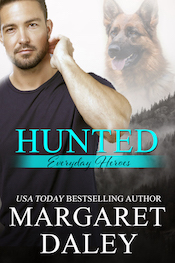1. What made you start writing?
Some years ago, I was having difficulties finding the right words to express myself to the Lord in prayer. No pulpit message or bible study brought those words to my lips. One day, I picked up a novel. The heroine in the story spoke the words that were burning in my spirit, but I couldn’t verbalize. Ah, the release! I remember shouting, “Lord, this is what I’ve been trying to say to You!”
It was a fictional story, but it “spoke” life into me.
Shortly after that, I felt compelled to write.
2. How long have you been writing? When did you sell your first book?
I have been writing for about 4 years.
Expectations is my first novel. I chose to self-publish. I did the submission-rejection-revision merry-go-round with traditional publishing houses until last year.
The last rejection I received was awesome. I was grinnin’ from ear to ear. Why? Because it gave me affirmation. The editor liked my story, voice, and writing skills, but turned down my manuscript because it didn’t fit their house at that time.
My minute of patience was exhausted by then, so I decided to self-publish.
Self-publishing is not for wimps. It’s a lot of hard work. However, it has been rewarding.
3. How do you handle rejections?
Initially, the wrong way. LOL! I take it personally. Then I get over it.
What helps me is the realization that there are many reasons for a rejection: company mandates, editor preferences, the quality of the manuscript, etc. A rejection is not necessarily a statement about the quality of your writing.
4. Why do you write?
In a nutshell, I write to spread truth through fiction.
My answer to question #1 provides further explanation.
The thing I want most is to be in the center of God’s will. I truly believe that writing is His will for me in this season of my life.
5. What would you be doing with your free time if you weren’t writing?
I’d definitely read more, and I’d be a romantic comedy movie junkie. LOL!
6. What are you working on right now?
I am currently working on my second novel, Even Then (working title). It contains some of the lovable and hilarious characters from Expectations. Even Then is a romantic comedy-drama about two women whose hearts are sent into a tailspin when they’re broadsided by the love of men they thought they knew very well.
If you like Aunt Lenore and Aunt Euvinia in Expectations, you’re going to love ‘em in Even Then.
7. Do you put yourself into your books/characters?
Not intentionally, but I don’t believe that it’s possible to write a story and not have elements of yourself shape the characters that you “give birth” to.
In Expectations, Daria’s main struggle was my own—unforgiveness. I experienced firsthand its stagnating and destructive force. Like Daria, I also experienced Christ’s liberating power in this area.
8. Tell us about the book you have out right now.
Expectations is a romantic comedy-drama about a woman who prays for a husband and receives more than one unexpected answer.
When Michael Greer barges into Daria Simpson’s home to avoid a belligerent ex-girlfriend, Daria is not impressed. Then Michael renews his relationship with Christ and begins attending her church. Suddenly, the atmosphere becomes electric, and despite her best intentions, Daria can’t get her mind off that man. Soon they’re having monster alerts that have nothing to do with ogres or dragons. Hilarious encounters, eccentric aunties, and a persistent ex-girlfriend give them plenty of action, but nothing prepares them for the arrival of a secret baby who reveals an awful secret.
It’s a fresh look at the struggle for pre-marital purity and the power of forgiveness. Using recognizable characters, situations, and comedy, this novel addresses the impact of self-discovery, physical intimacy, and spiritual renewal on the Christian single man and woman.
9. Do you have any advice for other writers?
Let’s see. How much space do I have?
• Make sure you know why you’re writing. Are you writing for profit or to be a conduit for the Lord’s message?
• Writing is hard work and not everyone will appreciate your brilliance. LOL! Weigh what you hear. Accept that which edifies—instructs and improves. Reject that which destroys.
• Remember, enjoyment of the written word is subjective. One person may not like your story, but another may love it.
• Please, please keep it real. Don’t sugarcoat life and the truth. I have received encouraging responses from readers about Expectations. Without fail, they’ve enthused about how real and believable the characters and situations are. If readers can identify with your characters and feel like they are a part of your story, I believe there’s a better chance of the message being accepted.
10. How important is faith in your books?
Acts 17:28 says it best: “For in him we live, and move, and have our being; as certain also of your own poets have said, For we are also his offspring.”
My faith is everything to me. It’s not just a way of life. It is my life. Because it is so integral to who I am, it will always be an important factor in anything that I do. That includes writing novels.
11. What themes do you like to write about?
Expectations mainly deals with the crippling effects of unforgiveness and the struggles involved in Christian dating and remaining pure before God.
Though my second novel is not crafted overtly around those themes, they are still there.
I don’t have a favorite theme. I’d like to believe that my writing will be guided by the message that God wants me to relay at a particular time, through a particular story.
12. You enjoy watching movies and traveling. How does your hobbies affect your writing?
As I stated before, I absolutely love romantic comedy movies. When I write a scene, I’m not satisfied until I can play it like a movie in my mind and see the characters or feel that…feeling that I get when I’m watching a movie.
Now that I’m a writer, I find that I pay more attention to the details of my surroundings when I travel. Sometimes, I catch myself trying to describe my surroundings without “telling.”
I’m also an avid reader. Now I can’t read a novel and just enjoy it for the story’s sake. I read and critique. I hate that! LOL! It’s become instinctive.
13. What is the challenge of writing romantic comedy to you?
For me, the greatest challenge is finding and maintaining a balance between comedy and reality in my stories. I try to mirror real life as closely as possible. If you think about it, life is dramatic, but it is also riddled with comedy.
When I joined the ACFW, many of our multi-published authors advised newbies to write what you like. I will devour a good romance story. Throw in some comedy, and I’m in reader’s heaven.
14. What is your writing schedule like?
Simply stated: I don’t have one.
Full-time employment, familial duties, and church ministry take up a lot of my time. My most productive writing usually takes place at night or on the weekends.
15. You write plays. How is writing a play different/similar to writing a book?
You know, I never set out to write a play. A group at my church wanted to put on a low-budget/no-budget production that had a strong biblical message. They searched the Internet and local Christian bookstores, but couldn’t find one that met their needs. They knew that I was an aspiring author, so they asked me to write something for them. The Lord dropped a nugget, The Crown Mystery, into my spirit, and I put it on paper. The group loved it, performed it, and encouraged me to make it available to others. That’s how my first play came to be published.
For me, writing that play was easier than writing a novel.
In a novel, everything—the setting, emotions, smells, movement etc.—has to be conveyed to the reader through words. If it’s done skillfully, the reader will see and experience the scenes in the novel.
I’ll be the first to say that I’m a complete novice when it comes to writing plays. My play was a simple stage play. So, I’m not sure that my limited perspective counts for much here.



